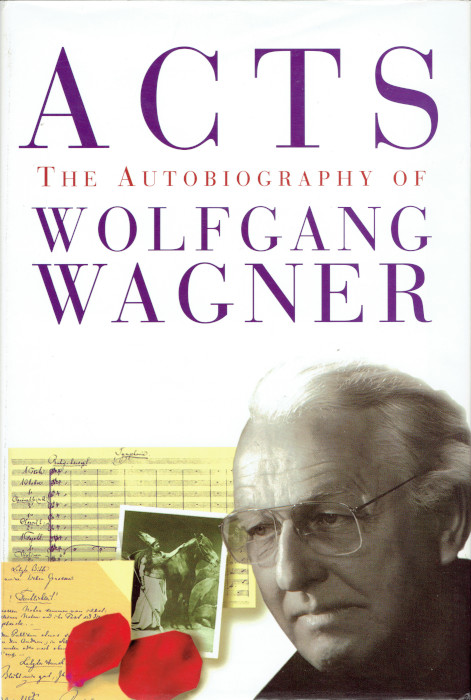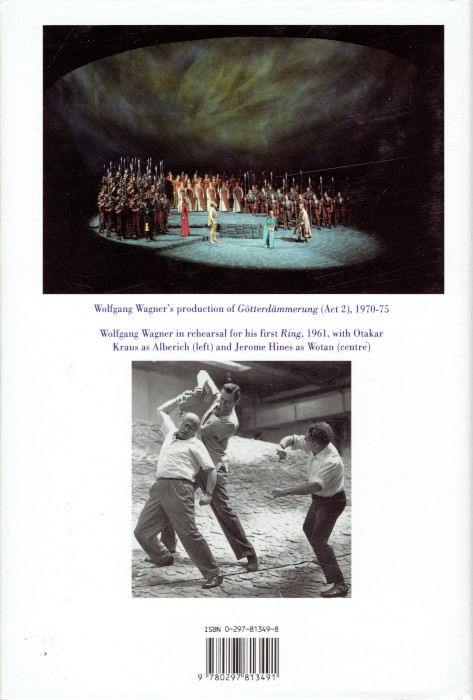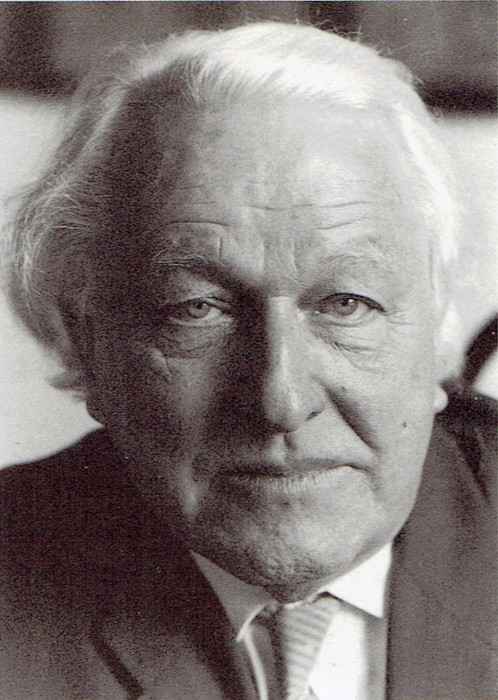Acts - The Autobiography of Wolfgang Wagner
Wolfgang Wagner
CONTENTS
List of Illustrations vi
Family Tree x
Foreword xi
1. A Personal Statement 1
2. 1966: A Different Situation 4
3. On Time and Space 17
4. Growing Up 28
5. A Fiction 51
6. Soldiering and Studying 54
7. Picking Up the Pieces 70
8. A New Start 100
9. Two Rings 129
10. Spreading Word and Sound 144
11. Along the Line of Continuity: 1 155
12. Along the Line of Continuity: 2 176
13. Wagner & Wagner 204
14. Foundation Stones 230
15. Miscellany 253
16. Viewing the Future 278
Appendix I: Total Number of Performances at Bayreuth 1876—1993 282
Appendix II: Cast Lists of Wolfgang Wagner’s Bayreuth Festival Productions 283
Appendix III: The Joint Will of Siegfried and Winifred Wagner, 8 March 1929 312
Index
When Wolfgang Wagner was growing up, the Bayreuth Festival was at its pre-war apogee. Under the aegis of Wolfgang’s English mother. Winifred, the festival devoted to the works of Richard Wagner had become the jewel in the crown of Nazi cultural life. Behind the scenes, there was artistic tension and personal conflict as the name of Wagner became coopted to a cause which he had never espoused. Wolfgang W agner recounts his own extraordinary encounters with prominent Nazi figures, including Hitler, and traces the tangle of music and politics which, with the defeat of the Third Reich, left the Festival discredited and almost destroyed.
For over forty years, sixteen of them in cooperation with his brother Wieland, Wolfgang Wagner has been head of the Bayreuth Festival. Famously outspoken, he tells of the great singers and conductors with whom he has worked, including Furtwangler, Karajan, Nilsson, Boulez, Solti and Barenboim. He openly discusses both the triumphs and failures at Bayreuth, by himself and bv guest directors such as Peter Hall, whose unsuccessful Ring he dissects.
‘In the vast number of books that have been written on Wagner and Bayreuth, many cliches, prejudices, halftruths and outright lies have become accepted as truths. Emotion – both devotion and hatred – has obscured reality. It is high time to bury the legends. That is whv I have written my autobiography’.
Few artistic figures have cast as long a shadow as Richard Wagner. For Wagner’s heirs, it has been a proud but difficult legacy.
When Wolfgang Wagner was growing up, the Bayreuth Festival was at its pre-war apogee. Under the aegis of Wolfgang’s English mother. Winifred, the festival devoted to the works of Richard Wagner had become the jewel in the crown of Nazi cultural life. Behind the scenes, there was artistic tension and personal conflict as the name of Wagner became coopted to a cause which he had never espoused. Wolfgang W agner recounts his own extraordinary encounters with prominent Nazi figures, including Hitler, and traces the tangle of music and politics which, with the defeat of the Third Reich, left the Festival discredited and almost destroyed.
For over forty years, sixteen of them in cooperation with his brother Wieland, Wolfgang Wagner has been head of the Bayreuth Festival. Famously outspoken, he tells of the great singers and conductors with whom he has worked, including Furtwangler, Karajan, Nilsson, Boulez, Solti and Barenboim. He openly discusses both the triumphs and failures at Bayreuth, by himself and bv guest directors such as Peter Hall, whose unsuccessful Ring he dissects.
This book, he writes, is ‘not one of remorse or justification. It is a final accounting of what I planned, did and omitted to do. of where I succeeded and where I failed. It is the unprecedented inside story of one of the most controversial and fascinating families of this century, now, as in the past, riven by dissent over who will become the next keeper of the flame.
Wolfgang Wagner was born in 1919 in Bayreuth, the son of Siegfried Wagner and the grandson of Richard Wagner. In cooperation with his brother Wieland he assumed the directorship of the Bayreuth Festival in 1951. and after his brother’s death in 1966 he became its sole director.
Jacket design by the Senate
Back jacket photographs courtesy of Bayreuther Festspiele
WEIDENFELD AND Nicolson
The Orion Publishing Group
Orion House .
5 Upper Saint Martin’s Lane
London WC2H 9EA
With 16pp black and white illustrations
£25 NET IN UK ONLY
FOREWORD
People have for years been asking me to commit my experiences to paper for the benefit of my contemporaries and even, perhaps, of posterity. I long declined to do so, partly on the grounds that my present and future commitments left me far too little spare time, and partly because I had no intention of adding to the vast amount of literature on Wagner and Bayreuth already in existence. But one cannot always abide by one’s resolutions, even the best of them, so I eventually bowed to the cogent arguments and pleas of my publisher, Lord Weidenfeld.
I did not fully realize what I had let myself in for until I started work, because my leisure hours are very few, and I was determined not to put together a kaleidoscope of anecdotes and intimate disclosures of the kind purveyed by so many volumes of memoirs. If this book were to have any point at all, I knew that it would have to be factually watertight without becoming excessively dry. This entailed very thorough research. The extent of the available material seemed prodigious, and I was naturally compelled to be selective because it would have been humanly impossible to plug every gap.
The considerations that governed my choice were subjective, and many people may regret — or even welcome – my omission of this episode or that. My ultimate determinants could only be the general, autobiographical framework of my story and the authenticity of what I recounted in detail. As anyone who dips into this book will realize, my experiences and activities were closely connected with the existence and history of the Bayreuth Festival from a very early stage. The older I become the less I can divorce the two spheres, each of which does, to a certain extent, emanate from the other. As for authenticity, it was not my ambition to perpetuate and prolong the endless series of stereotyped ideas, prejudices, half-truths or total lies about myself and Bayreuth, nor to refute them point by point. I have simply adhered to the facts themselves.
If, in addition to conveying my personal characteristics, it conveys something of Bayreuth’s immense vitality, and of my unremitting efforts to preserve the festival, I shall consider that this book has fulfilled its purpose. That it came into being in its present form is due not least to my numerous assistants and comrades-in-arms. My sincere thanks to them all.
W.W.




